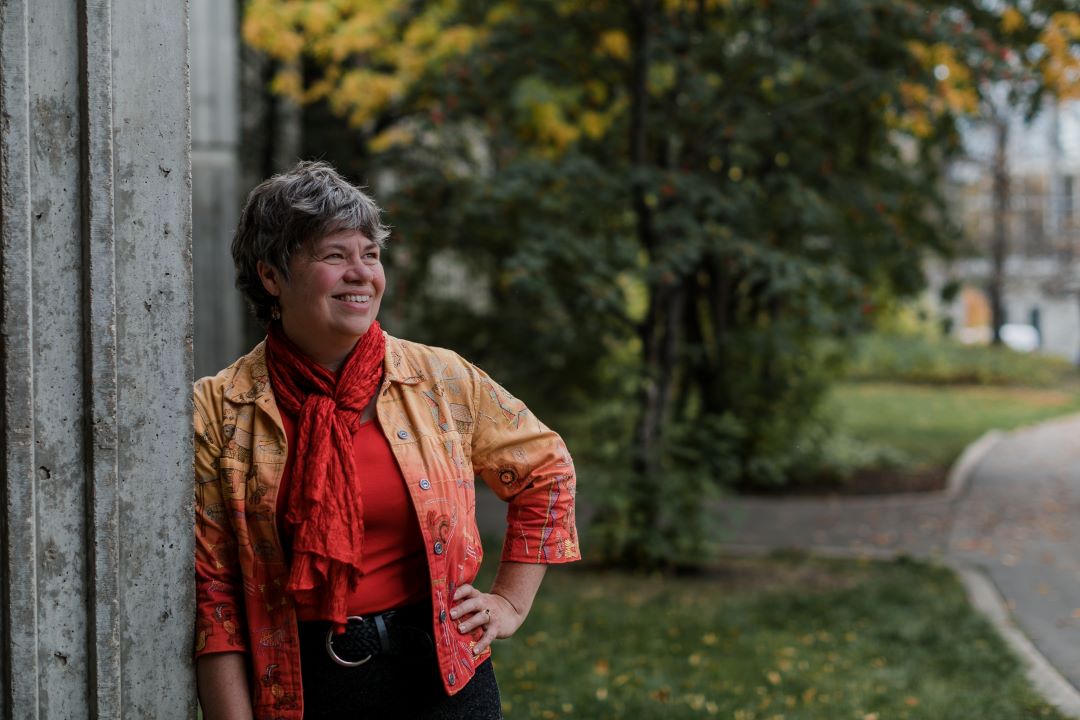
"The future of engineering holds remarkable opportunities"
FROM THOROUGH MAGAZINE: USask Engineering Dean Suzanne Kresta looks ahead to 2022.
By Suzanne KrestaAs 2021 closes, many of us are looking forward to more freedom to be with family and friends this year – at the same time as we keep some limits on large gatherings. We were all breathing a sigh of relief as we return to (mostly) in-person exams this December. The college was slated to return to full face-to-face operation in the new year, though this was ultimately delayed until Jan. 24, due to the onset of the Omicron variant. A vaccination mandate and masking mandates are set to remain in place for at least another four months.
This fall has been an exciting time in the college as we launched the RE-ENGINEERED first-year program, hosted an accreditation visit from the Canadian Engineering Accreditation Board, and built plans for significant renovations to the college. While we can’t yet share details, we are excited to see the university’s comprehensive fund-raising campaign nearing the point where we will fully launch plans that will uplift engineering for the next generation.
The future of engineering holds remarkable opportunities – and many challenges. ESG (Environmental, Social and Governance) Value Strategies have become central to our thinking about new projects and a key part of investor relations. The future of energy and energy transitions are top of mind for everyone – and our college is no different. Read more about how we are Engineering the Future of Energy in this edition of Thorough.
We also recognize that sustainability has new dimensions – we now look beyond financial sustainability and environmental sustainability to consider community impacts, the importance of meaningful consultation, and the socio-cultural impacts of major changes. Infrastructure projects may be subject to the impacts of major climate events and need to be designed to address these additional challenges – in the face of limited resources and the need for innovation and effective solutions.
Our post-COVID-19 working world will be different – and also the same. Our teams now have greater geographic reach with the ability to leverage travel time for other purposes – but also the need to recognize that the travel time was not wasted! Hybrid work will provide all of us with more flexibility – and even the quietest introverts are excited to return to the office.
I had the privilege of engaging with a number of elders and community members this fall as we offered our Indigenous Cultural Contextualizaton course for the first time. As I look back on my own first courses in engineering and recall that environmental concerns were not part of our practice, and then remember the dramatic change in workplace safety as we all implemented safety cultures a decade later, I am optimistic about the future. The 92nd Call to Action from Canada’s Truth and Reconciliation Commission and Recommendation 34 from UNDRIP (United Nations Declaration on the Rights of Indigenous Peoples) really sound like the ways we would all like our communities to be treated in the face of major project developments.
This path is not simple to map out, but the steps we are taking are meaningful steps toward a wider truth. It is my belief if we can stay the course, we will find that these skills will benefit everyone, and our technical work will be much better as a result of thoughtful listening and response.
This article was originally published in USask Engineering's December 2021 edition of Thorough magazine.

